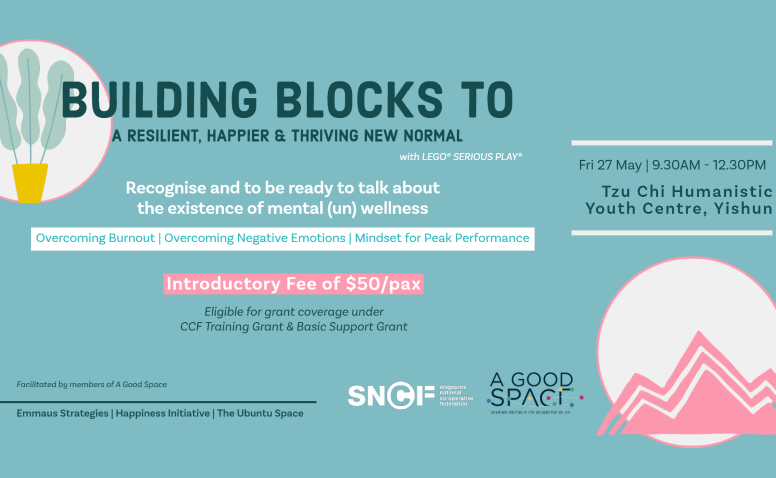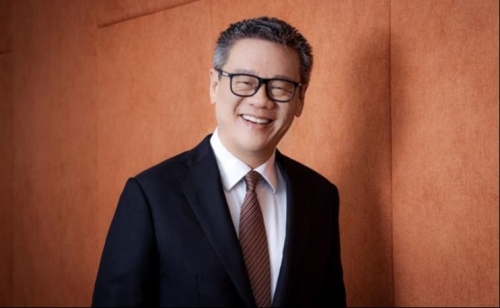
When the pandemic started, companies adopted remote workand commit to Zoom calls or other virtual tools to communicate and collaborate both internally and externally. In the years that zoomed (pun intended) by, with the situation now becoming largely under control, workplaces are beginning to open up and offer flexible work arrangements, while employees are encouraged to return to the office whenever they can or as required.
All of which are done so in the hopes of stimulating greater collaborations in in-person settings, improving productivity levels, fostering a sense of identity in the workplace and combating the hidden toll of remote work—that is, loneliness. And so return to the office, we must.
But we should not forget the financial, psychological, emotional, and physical toll of such drastic changes. Employers, C-level management, and human resources ought to recognise the saliency of redesigning the workplace into one that doubles as a safe haven—first, against the onslaught of the pandemic and second, against mental unwellness.
In an article last year, Harvard Business Review highlighted some strategies that could improve employees’ health and well-being, including allowing employees more flexibility about when and where they work, giving employees control over how they work, and encouraging managers to support their staff’s personal needs. Other companies have even doled out wellness benefits to their employees. Such benefits run the gamut from subsidised gym memberships, free-flow kombucha, to even therapy sessions.
Pandemic of yesteryears have proven, time and again, that mankind is resilient; we can bounce back stronger and better, and that our psychological immune system is more robust than we expected. Regardless, it is imperative that we still acknowledge that not everyone has the resources to cope well or adequately in times of need. For companies with vested interests in consumers, stakeholders, and employees, creating an empathetic workplace for employees is not a bad suggestion after all.
In the second part of two mental wellness series, we reached out to customer relationship management platform provider HubSpot for their insights on improving empathy in the workplace. If anything, the responses from Andee Chua (HubSpot’s Community and Culture Builder & LinkedIn Top Voices 2022) reflect the co-operative principle of concern for community.
What is your role at HubSpot?
Andee Chua: I am from the Employee Experience & Culture team. I facilitate and nurture a trusted community of employees with a focus on collaboration, learning, inclusion, and supporting each other. I also actively partner local business leaders to develop employee engagement strategies, identify practice improvements, and promote company culture and values to employees, in order to foster a great culture within their teams and departments.
The idea that employee wellness, with its gamut of sexy office perks—such as free-flow kombucha, guided meditation, subsidised gym memberships, team yoga, and even sound baths—is not new. Some companies employ them extensively, while others don’t. Do you think these perks are what we need to be healthier or feel more engaged at work?
Andee Chua: Having these sexy office perks related to wellness is definitely a great start to building a culture of wellness and taking care of employees’ wellbeing, but they may not entirely be the most impactful.
Based on research, “personal touch” was one key factor employees look for in a wellness programme and can come from knowledgeable “live” experts—such as coaches and specialists—who are credible, engaging, easy to access, and provide one-on-one support for their specific needs. Employees also look at attaining work-life balance; not being overworked and having time set out for their own development and learning.
 We Are All Wired To Care, So How Can We Improve Empathy In The Workplace – with Decathlon SG
We Are All Wired To Care, So How Can We Improve Empathy In The Workplace – with Decathlon SG Companies have since shifted how they kick start conversations on workplace wellness. What are we seeing at HubSpot today? How can we all learn to start conversations like that?
Andee Chua: Workplace wellness isn’t just about providing wellness perks or benefits for employees to enjoy, or setting up a few wellness webinars just to get the job done. It is important to build long-term and impactful support for all employees, no matter what their work preferences are.
One thing we spoke about at HubSpot is how to be inclusive when we think about our wellness programme. The isolation many felt amid the pandemic is still a major concern for remote workers who may never actually meet their co-workers in person.
Nurturing authentic connections through employee resource groups, remote mixers, and non-work-related Slack channels helps create a sense of belonging that can make a world of difference, especially for those working from home. Humans need social interactions, so we need to be intentional and proactive in how we reach out to one another.
We have also taken the approach to partner Modern Health since the beginning of 2021, providing all employees with accessible mental health support, regardless of location, and enabling us to build a culture that normalises and encourages mental health and well-being.
Our CEO, Yamini Rangan, recently shared how she's been using our Modern Health benefit and the impact it has had on her life in a company-wide all-hands, spurring even more conversations across the organisation.
How can we cultivate compassion and empathy at work? What are some of the nuances that we need to pay heed to as well?
Andee Chua: One thing we do at HubSpot to cultivate compassion and empathy at work is to speak openly and be transparent about our failures. We run a Failure Forum where we have leaders and individual contributors sharing their failure stories in a live session. This is a chance for us to come together, learn from others’ mistakes, and gain comfort in the fact that failure can be our greatest teacher if we're humble enough to let it.
It is also helpful to have empathetic and compassionate leaders at work. If our leaders are able to show vulnerability and display empathy, from the way decisions are made, to the way they interact with employees, and how they speak up and make a stand on pressing matters—that is going to set the tone of the culture and lead the way.
What are some of the other wellness strategies practised at your company? How effective are they in bolstering communities?
Andee Chua: Between caregiving, to adjusting to remote work, and heartbreaking headlines about racial injustices and COVID-19 around the world, we've all felt exhausted, overwhelmed, or drained in the past week, month, or year. While we’ve done a lot to help employees at HubSpot manage stress and burnout over the last year, we recognise that this is a marathon, not a sprint. That’s why we’ve introduced HubSpot Unplugged, a new initiative driven by employee feedback, which includes three key components to helping with burnout:
- A Global Week of Rest: In 2020, we had regional Global Days of Rest, which was a dedicated day off from work. Since 2021, we’ve made July 5th - July 9th a company holiday week for all employees globally to take time off and recharge.
- No Internal Meeting Fridays: We are encouraging employees to not book internal meetings on Friday to help combat Zoom fatigue and restore some of that positive Friday energy. Employees will of course use good judgment for what that looks like for their teams and meetings with customers, partners, candidates, etc.
- More Mental Health Programming: In addition to adding Modern Health as a benefit for all employees globally, we’re hosting additional programmes for employees to listen, learn, and identify ways to prioritise their mental health at work.






